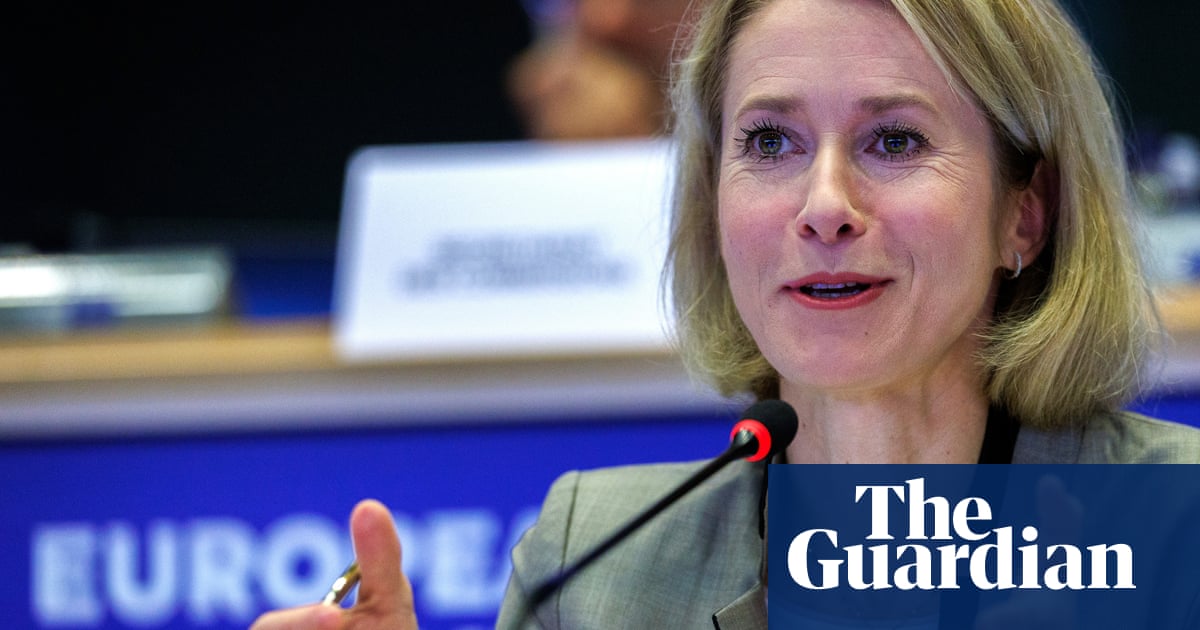cross-posted from: https://feddit.org/post/4724783
China should face “a higher cost” for supporting Russia in the war against Ukraine, the EU’s incoming foreign policy chief, Kaja Kallas, has said.
The former Estonian prime minister was speaking to MEPs during a three-hour hearing before she takes office, when she listed Ukraine’s victory as a priority – stronger words than vaguer formulas of support voiced by some EU politicians.
“Victory of Ukraine is a priority for us all; the situation on the battlefield is very difficult,” Kallas told MEPs in her opening remarks. “That is why we must keep on working every day, today, tomorrow and for as long as it takes, and with as much military, financial and humanitarian aid as needed.”
[…]
I was reading @[email protected] and @[email protected] exchange and I found it an interesting - albeit moot - topic. So I went and spent the last hour to download some data and filter it: I will post some numbers with no commentary. I will add my opinions after them in a spoiler.
imf.org GDP, current prices, Billion of U.S. dollars
2023 GDP Nominal
NATO 52392,344
BRICS 27330,3452024 GDP Nominal (estimates)
NATO 55148,819
BRICS 28442,630
imf.org GDP, current prices, Purchasing power parity; billions of international dollars
2023 GDP PPP
NATO 63996,245
BRICS 66010,8892024 GDP PPP (estimates)
NATO 66812,821
BRICS 70911,69
imf.org GDP based on PPP, share of world
2023 GDP PPPSH
NATO 34,731
BRICS 35,8242024 GDP PPPSH (estimates)
NATO 34,339
BRICS 36,446
Brazil, People’s Republic of China, Egypt, Ethiopia, India, Iran, Russian Federation, South Africa, United Arab Emirates
Albania, Belgium, Bulgaria, Canada, Croatia, Czech Republic, Denmark, Estonia, Finland, France, Germany, Greece, Hungary, Iceland, Italy, Latvia, Lithuania, Luxembourg, Montenegro, Netherlands, North Macedonia, Norway, Poland, Portugal, Romania, Slovak Republic, Slovenia, Spain, Sweden, Republic of Türkiye, United Kingdom, United States
MHO
This comparison makes no sense for a multitude of reasons, starting from the difference in effective cohesion, motivation and raison d’être of the two organizations.
Even if there were multiple tries, especially by Russia, to push for more integration in the economic and military structure, you can see how it is still incredibly fractured: if you are interested you can check on the current state of the SWIFT alternatives to see how much each of the big players still pull to be the leader.
A more apt loose organization to compare BRICS to would probably be the G7, but even there it really is not the same, considering the member list and how integrated they are in other ways. Still, a better one.
Aside from that the PPP is often touted as a great way to compare completely different economies, and it has its uses to understand how people live in different countries. Its use in a comparison like this one has, IMHO, no space.
If someone comes to me with a one Billion random-currency investment, even if for them it only buys a loaf of bread but for me it means a new factory and 100 full-time employees, if they withdraw it it is a disaster.
Then again GDP is not even the parameter we should be looking into, considering the article: We should check the international trade between China and the European Union, and make consideration about that.Last, but not least, I used the IMF numbers because they are easy to get in a nice format. They are not the best, but they are not the worst too. More info here, have fun.
When Europe and the US put sanctions on China and Russia, there’s an obvious problem, though:
BRICS countries now have a higher GDP than NATO.
And?
It’s like me boycotting Nestlé.
LOL.
I don’t know where you get that but:
NATO DGPThe combined GDP of all 31 NATO members, alongside impending addition of Sweden as a member state, amounts to a staggering $45.93319 trillion (calculation below).
Placing this figure into context, the world’s GDP stands at approximately $100,562 trillion (nominal, 2022). Consequently, NATO’s GDP constitutes a formidable 45.65 percent of the global GDP.All five initial member states are members of the G20, with a combined nominal GDP of US$28 trillion (about 27% of the gross world product), a total GDP (PPP) of around US$65 trillion (35% of global GDP PPP), and an estimated US$5.2 trillion in combined foreign reserves (as of 2024).
Also see this list to see how insignificant the BRICS members are compared to the combination of EU, US and Canada: https://www.nationmaster.com/country-info/stats/Economy/GDP
I don’t know what point you’re trying to make. According to your own quoted numbers:
combined GDP of all NATO members +Sweden = $45.93319 trillion
total GDP of only the five initial BRICS member states = $65 trillion
So you compare NATO+ with only a part of current BRICS and it’s still less.
I misread the first quote (have also fixed my highlighting). I now wonder where the number in wikipedia comes from if you add up the GDPs from my third link, the BRICS countries are nowhere close to the the combination of EU, US and Canada, which basically make up NATO…
Edit: Maybe because their numbers only go up to 2012
Yeah, numbers from 2012 are useless. Chinas GDP has more than doubled since then.
Having read the thread and all the numbers which are very interesting, I can’t help thinking that whatever the economic output is in whatever country or bloc, China must face higher cost for backing Russia in Ukraine.




